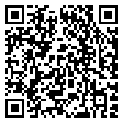等修饰的名词 He spoke so aloud that everyone in
the room heard.
such...that...
such 后跟可数名词单数、可数名词
复数或不可数名词
It was such a terrible day that none
of us would find an excuse for
going out to play.
so that
结果状语从句前可用逗号与主句隔
开,that 有时可省略
We arrived early in the morning,so
(that) we caught the first train.
四、让步状语从句
引导词 用法说明 例句
though,
although
though 不如 although 正式,两者常可
互换。
Although/Though she works
very hard,she makes very low
progress.
even if,
even though
表示语气更强的让步,意为“即使;
尽管”。even though 中 though 不可用
although 代替
Even if/Even though you say
so,I do not believe it.
疑问词-ever,no
matter+疑问词
疑问词-ever 可与 no matter+疑问词
互换。why\\whether 不能与-ever 连用
Whenever I'm unhappy,it is
my friend who cheers me up.
The quality will be the same,
whichever of them you choose.
as
从句中的表语、状语或作谓语的实义
动词需提前至句首。作表语的可数名
词单数前若有冠词则需要省去。though
引导的从句也可这样用,但 although
不能
Pop star as/though she is,she
still needs improve.
五、其他状语从句
引导词 用法说明 例句
地点状语从句
主要有 where,wherever 等。where
指“在某个地方”,wherever 指“在
任何地方”
Please make a mark where you
have a question.Sit wherever you
like.
目的状语从句
主要有 in order that,so that,for fear
that,in case 等。从句中常用 may,
might,can,could,should 等情态动
词
I'll run slowly so that you can catch
up with me.
条件状语从句 主要有 if,as/so long as,on condition If he breaks his promise,she will



